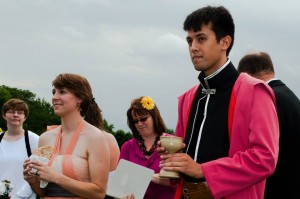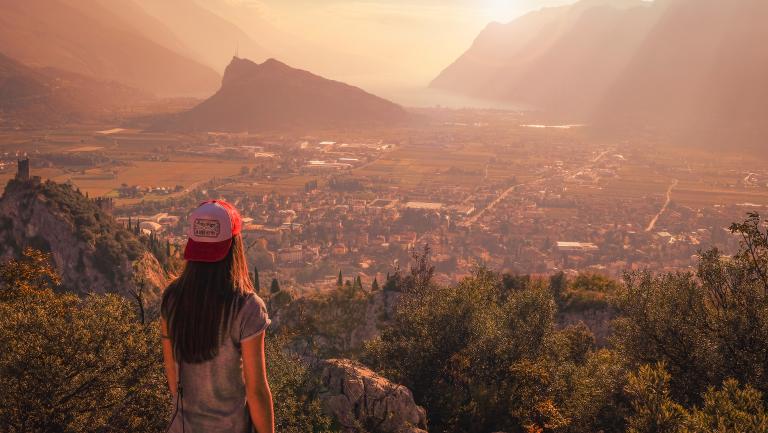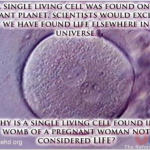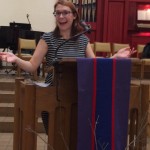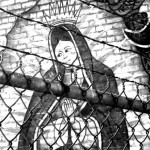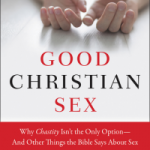I already shared my fun, geeky wedding vows. But if you’re interested in hearing our serious set of vows, here they are:
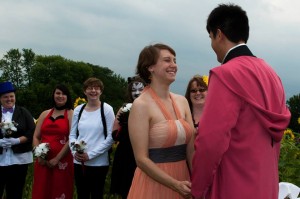
In the name of the God of love and justice,
I, _________,
Take you, _________ to be my equal partner in marriage.
I vow to love you and to affirm your humanity,
As one made in the image of God.
To actively nurture and care for you.
To provide for and protect you.
I vow to never abuse you,
Because “abuse and love cannot coexist.”
I vow to treat you justly,
Because “without justice there can be no love.”
We will use the energy our love gives us,
To work justice in the world together,
From this day forward,
Until death do us part.
This is my solemn vow.
Abe and I are both at odd places with our religious beliefs right now (we don’t know what the heck we believe anymore sometimes), so we weren’t sure how to approach the whole “vows before God” thing. But we both also have a religious background and the religious aspect of our ceremony was important to us. So we didn’t just make our vows to “God.” We made them to the God of love and justice.
Maybe God exists. Maybe she doesn’t. But love and justice are powerful, important forces, so Abe and I felt comfortable making vows to their name.
We also wanted to emphasize that our marriage was not an orientation into the complementarian gender roles we were brought up to belief in. So, we stressed that we are equal in this marriage. There is no “head” of our household. We’re teammates, not a two-person hierarchy.
Our goal is that, in marriage, we are better able to treat one another as humans, not just as roles. We included, in our vows, promises to “nurture and care for” and to “provide for and protect.” In the complementarian traditions Abe and I grew up in, we were taught that nurturing was a woman’s role and providing/protecting was a man’s. We both learned, through our relationship, that no one wins when this role binary is forced onto people. I can’t do all the nurturing and caring for in our relationship. I need nurturing too. Abe can’t do all the providing for and protecting in our relationship. He also needs provision and protection.
So we both promised each other that we would both fulfill both of these so-called male and female roles for one another whenever we could.
The next few lines of our vows draw from bell hooks’ All About Love, and contains some quotes from that book.
It was really important for me, as an abuse survivor, to include something in our vows that made it clear that putting up with abuse was not part of the deal. bell hooks’ words from All About Love, that “love and abuse cannot coexist” are words that have helped me resist the myth so prevalent in much of the Christian culture I was raised in that one can abuse another person out of love. So, we included them in our vows.
I also included a line from All About Love that talked about how “without justice there can be no love.” Abe and I, like many couples, are in a mixed-privilege relationship. I am a woman, and he is a man, therefore he has privilege that I do not have. I am 100% white, while Abe is half-Chinese. Therefore I have privilege that he does not have. Not only did we want to resist the idea that abuse can coexist with love, we wanted to resist the idea that we can love each other well without first addressing the privilege and systems of power–racism, sexism, etc.–that divide us.
Finally, we wanted to promise ourselves and each other that we will always remember that we are part of something bigger than ourselves. We are part of local communities, of a larger society. We are part of a world of people, part of a planet, and part of a universe. We can use our marriage to serve ourselves, and that is not wrong. But we must also remember that we don’t live in a bubble. So we will use the energy our love gives us to serve our communities and our world.
These are our solemn vows.
